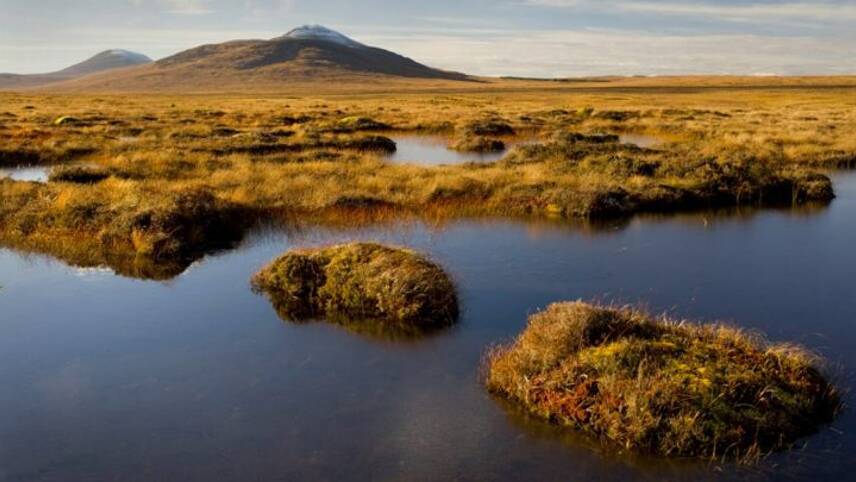Register for free and continue reading
Join our growing army of changemakers and get unlimited access to our premium content

Peatlands can sequester carbon when conserved
The Department for Food, the Environment and Rural Affairs (Defra) this week launched a consultation on how best to deliver its promise to end the same of peat products, including compost, by May 2024. That commitment was originally made in May under the new England Peat Action Plan.
The consultation runs until 18 March 2022. It proposes that the sale of peat for domestic use is banned from May 2024 in England and Wales, but not phased out for professional use until 2028. Bagged growing products, sold to professionals and amateurs, account for 70% of all peat sales in the UK, Defra estimates.
Retailers will need to implement alternatives to peat moss such as wood-based materials, pine needles, composted manure and leaf mould. Several retailers have already banned peat products on a voluntary basis, including Dobbies Garden Centres (which has a 2022 target) and the Co-op.
Retailers will also need to report on the volume of peat sold if Defra’s proposals go ahead.
Environment Minister Rebecca Pow said: “The amateur gardening sector has made huge strides in reducing peat use and there are now more sustainable and good quality peat-free alternatives available than at any other time, so I am confident now is the right time to make the shift permanent.”
Conservation groups have argued that these timelines are not ambitious enough and that Defra’s proposals will, ultimately, not end peat extraction domestically. Defra has said it will review peat extraction licences.
Just 13%-20% of the UK’s peatlands by land area are in good condition, according to studies by conservation organisations. Degradation can cause peat bogs to emit, rather than store, carbon dioxide. England’s peat bogs currently emit around 10 million tonnes of CO2e each year. It can also accelerate biodiversity loss, erode soil and contribute to flooding.
The Wildlife Trusts’ chief executive Craig Bennett said that, if the Government were to introduce leading measures, it would implement an immediate ban on horticultural peat use domestically and professionally, as well as a ban on peat extraction domestically and on peat imports.
“The UK Government has been dithering over this crucial issue for decades and the consultation on the use of peat by gardeners is long overdue, but this consultation is a damp squib,” Bennett said.
“It refers to amateur gardeners – but why not professional gardeners and the rest of the industry? It refers to the damaging effects of peat extraction – but this activity is still allowed in England which is absurd given the excellent alternatives to peat that are now available.”
“We need to stop kicking the can down the road,” said the University of Sussex’s Professor of Biology Dave Goulson. “The Government acknowledges we are in a climate emergency, but isn’t even prepared to stop depletion of a vital carbon store for needless ornamental use in our gardens. We need to stop peat use now.”
As well as phasing out peat from sale, Defra has committed to restoring at least 35,000 hectares of peatland by 2025. Green groups have repeatedly called for more clarity on how this level of restoration will be delivered, as well as additional funding.
Defra has this month awarded £4m of funding, through Natural England, to 10 peatland restoration projects across England. Locations include Cambridgeshire, the Norfolk Broads and the Pennines. Natural England chair Tony Juniper said the funding should “unlock barriers faced for smaller, up and coming projects and will make a major difference to protecting these precious habitats”.
The £4m is in addition to £2.7m already announced by Defra to create the ‘Great North Bog’ – a landscape-scale project covering 7,000 square kilometres of peatland soils across four National Parks and three Areas of Outstanding Natural Beauty.
As nature conservation and restoration is a devolved issue, the Welsh Government has its separate National Peatland Action Programme through to 2025. Wales has invested a total of £1.5m in the Programme’s delivery over the past year.
National Grid
In related news, National Grid has stated that it is making good progress on a project to restore a 15-hectare ancient peat bog in Wales.
The project to restore the peat bog, located in the Cynon Valley in Rhondda Cynon Taf, close to the boundary of the Brecon Beacons National Park, should enable the sequestration of up to 32,000 tonnes of CO2.
National Grid is financing the project with £120,000 and has partnered with Rhondda Cynon Taf County Borough Council and ecohydrology consultancy Rigare Ltd to deliver the restoration. Restoration has involved rewetting the bog and encouraging the growth of mosses and other plants.
“This project has provided a unique opportunity to capture carbon and integrate biodiversity enhancement at the same time,” said National Grid’s sustainability specialist Chris Plester. “It’s been an incredible journey for the whole team to watch the peat bog come to life once again.”
Sarah George


There’s at least one company making peat compost from the peat that is naturally washed from the moors and normally lost to the rivers and sea. They trap the peat particles in "soft" dams, collect it, process it and sell it in bags. It’s brilliant and totally sustainable plus prevents loss of peat to the sea.
I hope that this kind of peat compost will still be permitted as it does not damage the peat bog but merely uses natural run off peat.